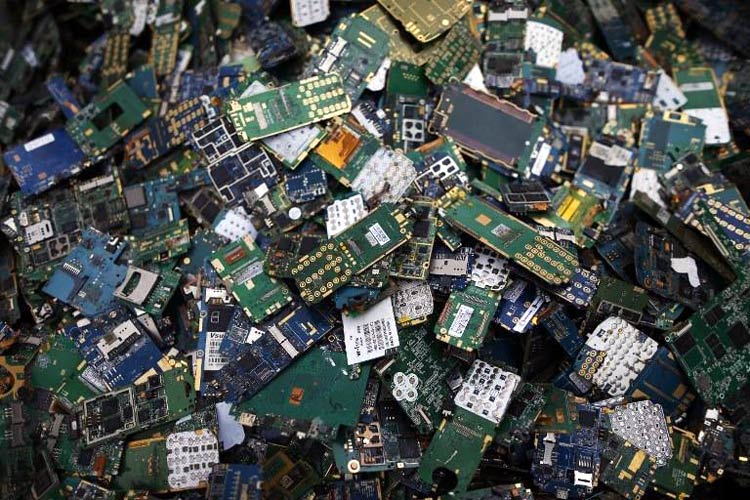
EU-Supported Versatile Robots Poised to Transform E-Waste Recycling
By Kaja Šeruga
Electronic waste, commonly referred to as e-waste, is one of the most rapidly expanding waste categories worldwide, with Europe being no different. Millions of tonnes of discarded devices and appliances accumulate annually, leading to escalating environmental and economic impacts. However, through EU-supported research, a new breed of adaptable, AI-driven robots may provide a significant advancement in how we handle and recycle this contemporary waste.
A Continual Challenge in E-Waste
Nestled near the historic German town of Goslar is Electrocycling GmbH—one of Europe’s largest e-waste recycling operations. Annually, Electrocycling manages up to 80,000 tonnes of electronic refuse, including items like televisions, computers, smoke detectors, and smart thermostats.
Despite the use of advanced machinery, a considerable proportion of the operations remains manual. Workers carefully sort the incoming waste and extract hazardous elements such as lithium batteries, which can pose fire hazards and are frequently permanently integrated into devices. This process is not only labor-intensive but also risky.
“There are increasingly more devices, they are becoming smaller, and all of them contain lithium batteries,” stated Hannes Fröhlich, Managing Director of Electrocycling. “It’s not an ideal job to disassemble these gadgets daily with hammers and pliers. I believe we can improve this.”
Indeed, the intricacies of e-waste present a challenge for automated systems. Traditional industrial robots face difficulties due to the high variability and unpredictable characteristics of disassembled electronics. Programming a robot for every conceivable device model proves both economically unfeasible and time-consuming.
Introducing ReconCycle: Intelligent, Adaptable Robotics
The breakthrough arrives in the shape of ReconCycle, an EU-funded research initiative running from 2020 to 2024, led by top institutions from Slovenia, Germany, and Italy. Directed by the Jožef Stefan Institute in Slovenia, the ReconCycle team aimed to develop a new type of robotic automation—flexible, smart, and capable of reconfiguring itself to manage various devices and tasks dynamically.
Dr. Aleš Ude, head of the Institute’s Department of Automatics, Biocybernetics, and Robotics and chief coordinator of the project, articulates the vision: “We aimed to broaden the capabilities of robotics by introducing robots into arenas where they haven’t yet been deployed.”
Utilizing Artificial Intelligence and modular components, these robots can independently modify their tools and behaviors, effortlessly transitioning from extracting batteries in smoke detectors to dismantling various elements in radiator heat meters. These objects, commonly found in residences and often replaced within a decade, contribute significantly to waste.
One notable aspect of the technology is the robotic “SoftHand”—a skillful, human-like appendage capable of grasping, twisting, and maneuvering items with the precise finesse required for complex disassembly. Enhanced with safety features and a flexible software framework, these robotic work cells signify a major advancement in recycling automation.
Collaborative Innovation Across Borders
The interdisciplinary essence of robotics innovation made global collaboration essential to the project’s achievements. “Robotics is highly interdisciplinary, so locating the appropriate partners within a single country is challenging,” Ude remarked. The team collaborated closely with Electrocycling to implement and evaluate their innovations in a real-world industrial environment.
The timing is particularly opportune. The EU generates nearly 5 million tonnes of e-waste each year—approximately 11 kilograms per person. Alarmingly, less than 40% of that total is recycled, as reported by the European Parliament. The global scenario is even more alarming, with 62 million tonnes of e-waste produced in 2022 alone. This volume is expanding five times faster than current recycling capacities can accommodate.
Beyond Environmental Considerations: Economic Ramifications
Amid these alarming figures lies another frequently overlooked impact: economic waste. According to the UN’s Global E-waste Monitor, an estimated €84 billion worth of valuable materials—such as copper, gold, iron, and other precious metals—is lost every year when devices are not correctly recycled.
At Electrocycling, up to 80% of incoming waste is reclaimed as usable raw materials, extracting elements like silver, zinc, and palladium. With smarter robots, this recovery percentage could potentially increase. “This is not merely waste,” Fröhlich emphasized. “These are precious materials that should be maintained in circulation for economic viability and CO2 reduction.”
Future Opportunities
While initially intended for the e-waste sector, ReconCycle’s versatile robots possess broader applications. From providing automated assistance in elder care to general home support, the technology hints at a future where robots could aid humans in various sectors requiring agility and adaptability.
“Envision a robot that can adjust to a new environment or task—be it assisting seniors at home or reorganizing items in a warehouse,” Dr. Ude suggested.
Supported by the EU’s Horizon research programme and aligned with Europe’s Digital Strategy